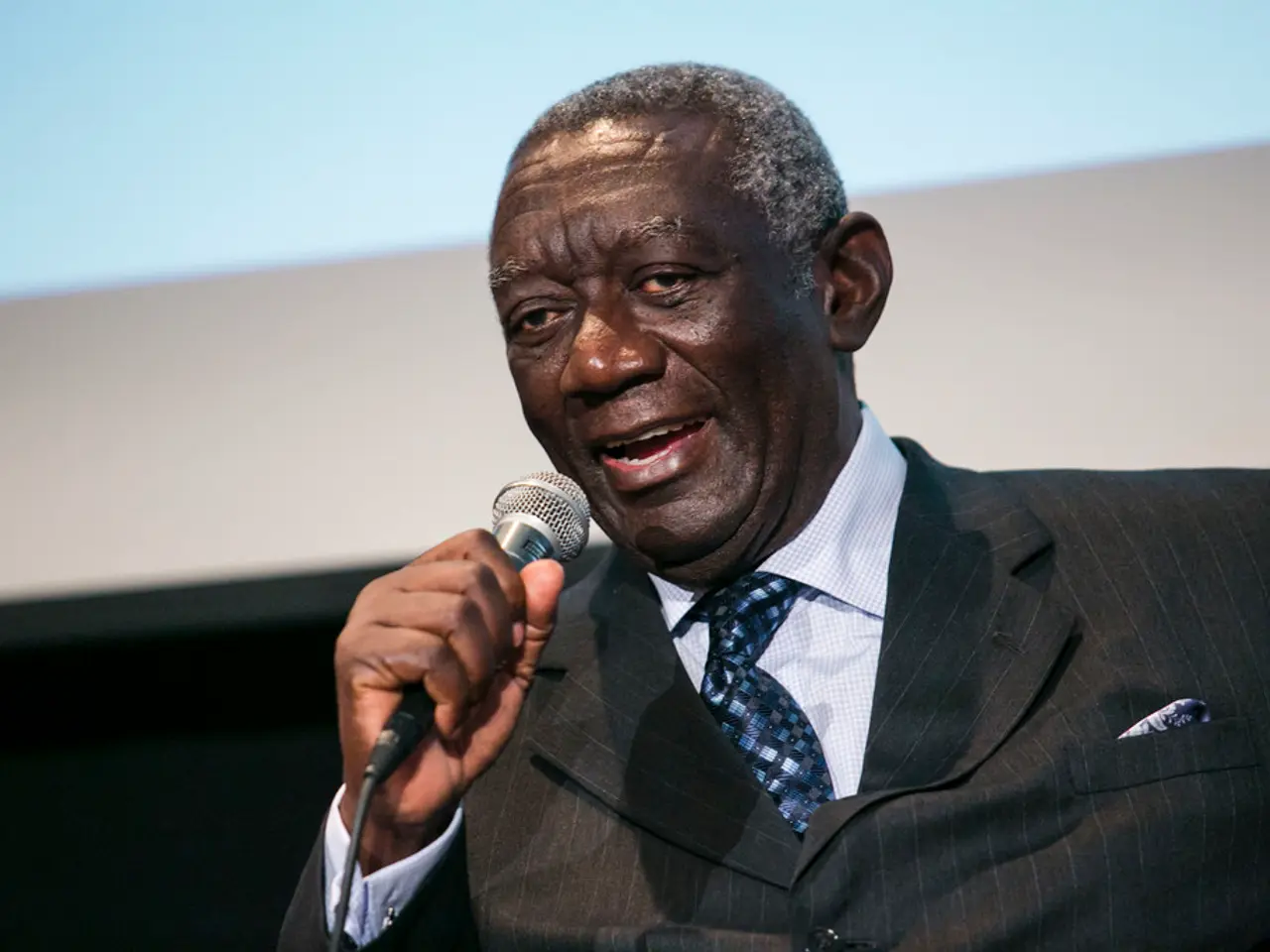Interview with Abake Adenle, head of Ajala as CEO and founder
Voice Automation in Low-Resource African Languages: A Promising Frontier
The African continent is witnessing a surge in the adoption of AI-powered technologies, particularly in the realm of voice automation. Companies like Ajala and Flutterwave are making significant strides in this area, underscoring the value of localization in the African context.
As African nations prepare for a future that embraces AI, policymakers should consider a unified African position on AI to ensure a coherent approach. This is crucial for success at scale, as products must be highly tailored to individual localities and contexts.
Early AI policies are being established at the national level in countries like Ghana, Kenya, Rwanda, and Nigeria. Adenle, the CEO and founder of Ajala, emphasizes the importance of investing in public education systems to equip all members of society with AI and data literacy. He also advocates for policies that encourage innovation, investment in infrastructure, and the development of local talent.
The current trends in voice automation for low-resource African languages focus on leveraging AI and large language models (LLMs) despite the scarcity of high-quality data. Companies like Ajala are working to overcome this challenge by specializing in rare language pairs, offering cultural and contextual localization beyond literal translation or transcription.
However, companies face several challenges in data collection and management. Data scarcity and quality, diverse dialects and linguistic complexity, infrastructure and technology gaps, cultural and legal considerations, and the need for specialized skills are all hurdles that must be addressed.
Despite these challenges, the prospects for voice automation in Africa appear promising. AI market growth in Africa is on the rise, and targeted strategies to address data limitations are being implemented. Voice interfaces are increasingly adopted by African SMEs to enhance customer engagement, suggesting growing practical use cases for voice automation across sectors.
Ajala, a London-based startup, is dedicated to collecting data in a socially responsible manner, including paying speech-sample providers, training data collectors, and establishing internal standards in countries with no formal data privacy regulations. Adenle believes that efforts to spur AI adoption in countries like Nigeria should prioritize policies that respect individual data rights and privacy.
The EU provides examples of how a regional bloc can advocate for the digital rights of its citizens. As the African Continental Free Trade Area (AfCFTA) continues to develop, regional institutions may focus more on advocating for the digital rights of African citizens.
In conclusion, voice automation in low-resource African languages is a promising frontier with significant market potential and technological advances. However, companies like Ajala must overcome critical hurdles in obtaining and managing representative, high-quality language data, adapting to linguistic diversity, and applying inclusive AI development strategies tailored to the African context. Data privacy and data security are crucial considerations for African nations as they adopt AI technologies. Voice automation tools can deliver convenience and facilitate service access in African markets, particularly for those who are illiterate or have limited internet access.
- The development of AI-powered voice automation technologies in low-resource African languages is experiencing a surge, with companies like Ajala and Flutterwave leading the way.
- In preparing for an AI-embracing future, African policymakers should consider a unified approach to AI to ensure success at scale, emphasizing localization and tailoring products to individual localities and contexts.
- Early AI policies are being established at the national level in countries such as Ghana, Kenya, Rwanda, and Nigeria, with a focus on investing in public education systems and encouraging innovation.
- Despite challenges such as data scarcity, diverse dialects, and the need for specialized skills, the prospects for voice automation in Africa are promising, with AI market growth on the rise.
- Ajala, a London-based startup, is dedicated to collecting data responsibly, addressing data privacy concerns, and implementing strategies to overcome language data limitations.
- The European Union offers examples of how a regional bloc can advocate for digital rights, and as the African Continental Free Trade Area continues to develop, regional institutions may focus more on advocating for the digital rights of African citizens.
- Data privacy and security are crucial considerations for African nations as they adopt AI technologies, as demonstrated by Ajala's commitment to respecting individual data rights and privacy.
- Voice automation tools can deliver convenience and facilitate service access in African markets, particularly for those who are illiterate or have limited internet access, making them a significant asset for economic development in the continent.




